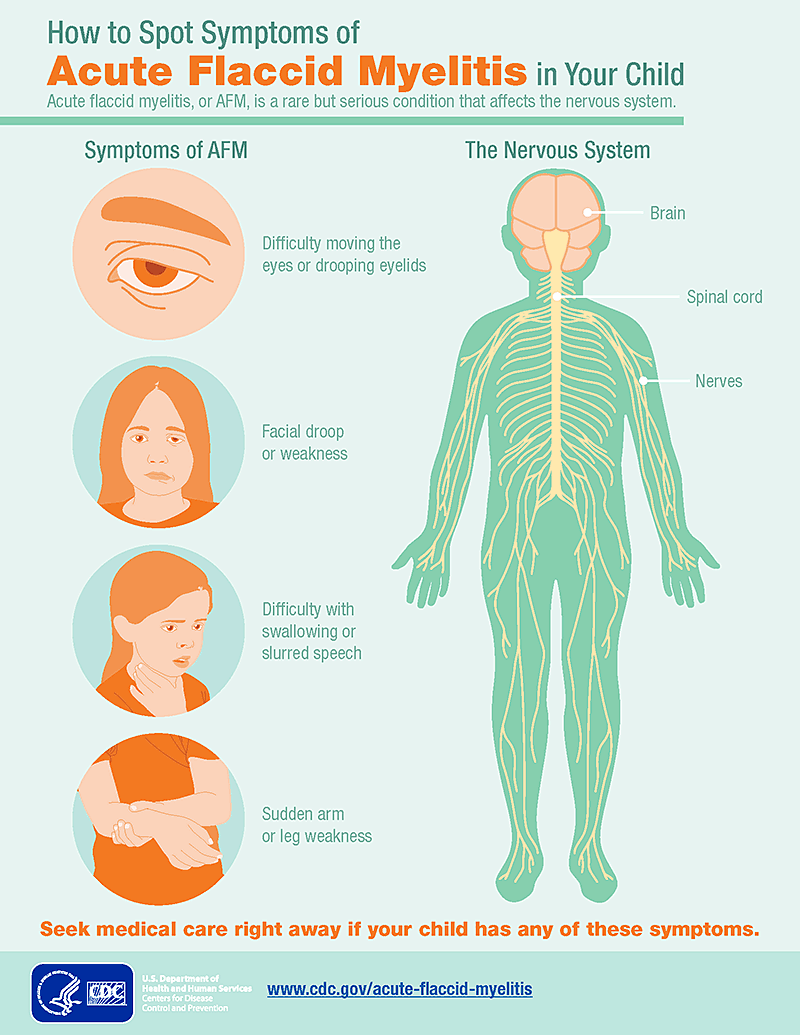As mystery illness AFM spreads across U.S., professor stresses need for laboratory test to confirm diagnosis
Julie Cooper | October 23, 2018


Acute flaccid myelitis (AFM) is a mysterious paralyzing illness that is primarily affecting children. The condition has been reported in 22 states, including 14 cases in Texas in October.
State and federal health officials are warning the public about the increase in the number of cases of AFM, but there is no known treatment for it.
Dr. Rodney E. Rohde, chair of the Texas State University Clinical Laboratory Science (CLS) program, says he is closely following AFM reports coming out of the Center for Disease Control (CDC). The university’s CLS program prepares students for a career as clinical laboratory scientists who will play a major role in the diagnosis, treatment, and prevention of disease.
“This is most likely a viral illness. These things tend to circulate in the fall and early winter months,” Rohde says. “This is in my wheelhouse as a medical laboratorian and board certified specialist in microbiology and virology. While there are signs, symptoms and some tests that that allow physicians to rule out other illnesses (like West Nile Virus or bacterial meningitis), you really don’t know what the agent is for certain, until you can confirm with a specific medical laboratory test, if one is available.”
The CDC website [www.cdc.gov/acute-flaccid-myelitis/about-afm.html] has this information about AFM: “Acute flaccid myelitis (AFM) is a rare but serious condition. It affects the nervous system, specifically the area of spinal cord called gray matter, which causes the muscles and reflexes in the body to become weak. This condition is not new, but the increase in cases we saw starting in 2014 is new. Still, CDC estimates that less than one in a million people in the United States will get AFM every year. There are a variety of possible causes of AFM, such as viruses, environmental toxins, and genetic disorders. Most of the cases that CDC has learned about have been in children.”
Since 2014, the CDC has reported 396 cases of AFM in the United States. This year, 72 cases have been confirmed and 119 are being investigated.
Rohde agrees that the agent is likely an enterovirus, adenovirus, or other respiratory agent that causes AFM.
Many confirmed cases have been children, with the average age 4 years old. The Texas Health and Human Services web site says AFM can be difficult to diagnose because it shares symptoms with several other neurologic conditions. AFM has been compared to polio because it can lead to paralysis and possibly death, but polio and West Nile virus have been ruled out.
Rohde said that doctors have been treating the signs or symptoms which appear to start out like a respiratory illness, with cough, runny nose and ,fever, “But until you actually identify the virus or whatever microbial agent it is with a laboratory confirmation test you cannot be 100 percent certain,” he says. “It is a public health phenomenon. When we talk about these things, it is really important to make sure we get it right.”
Medical and clinical laboratory professionals provide about 70 percent of laboratory medicine data and results so that physicians and others in healthcare can make a correct diagnosis and treatment plan.
Rohde says there are basic measures that parents can take to help prevent the spread of illness;
-
Hand hygiene – be sure to wash your hands and your children’s hands. Very young children have a habit of touching everything or putting anything in their mouth.
-
Be aware of illnesses in others. Has your child’s daycare or school reported a high absentee rate?
-
Make sure your child’s vaccination schedule is current. “When you are talking about infants and toddlers they are not fully immune competent,” Rohde says.
-
Watch your child for symptoms such as high fever that doesn’t go away or any type of paralysis.

Share this article
For more information, contact University Communications:Jayme Blaschke, 512-245-2555 Sandy Pantlik, 512-245-2922 |